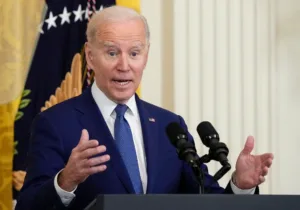No doubt there are many ways that Jews and Christians misunderstand each other. When Jews imagine Christianity, we tend to imagine a Western, medieval Christianity that doesn’t really exist anymore, a powerful, persecutory, triumphal Christianity.
When I teach on Jewish-Christian misunderstandings, I always explain that I wish Jews knew something about a Christian experience that looks a lot like the Jewish experience of minority, vulnerable, persecuted Christians, often living on the doorstep of the Jewish state. This understanding could not only expand our thinking beyond the European paradigm of Christian power and Jewish vulnerability. It could also open a potentially potent space for sharing resources and experiences: how do we transmit a minority religion and culture to the next generation? How do we memorialize our losses? How to we maintain hope in challenging circumstances? These are all significant questions for which Jews and minority Christians could share answers.
When I think about all this, it feels miles away from the annual festive Hanukkah/Christmas dilemmas of North America. And yet (bear with me), it’s not.
For sure, it can be confusing to people that Hanukkah and Christmas fall around the same time of year. Growing up in Canada I was often asked some variation on “that’s your Christmas, right?” In the Diaspora it always felt like Hanukkah was a kind of “consolation prize” for us Jewish kids who didn’t get Christmas. That they always arrive close together has fueled a whole range of pop-culture “Chrismukkah” greeting cards, recipe books, sweaters and decorations. Unsurprisingly, both Christian and Jewish groups reject this hybrid as a disingenuous misrepresentation of the spirit of both holidays.
Christmas of course celebrates the birth of Jesus, the modest entrance of the Messiah into the world. Hanukkah appears completed unrelated. The basic outline of the Hanukkah story is that in 175 BCE Judea was invaded by the Seleucid emperor Antiochus Epiphanes IV. He persecuted the people, outlawed fundamental Jewish practices and violated the Temple with a statue of Zeus and the sacrifice of impure animals on the altar. The Maccabees arose in response, and these Jewish guerilla warriors undertook an uprising, lead by Mattityahu and his five sons. That revolt was successful, and by 165 BCE the Temple had been recaptured and cleaned, with a new altar dedicated, fit for sacrifices to the God of Israel.
One problem remained – according to Exodus 27:21, lamps were to burn all night, every night, lit from pure, consecrated olive oil. And only one such jar of oil was found – enough for one day. Yet that oil lasted eight days, the length of time it took to bring more pure oil to Jerusalem.
In short then, Hanukkah celebrates two intertwined things – a military triumph and a spiritual victory: religious freedom won for a persecuted people allowing us to continue our service to God and journey of holiness.
The relationship between the two holidays is fascinating: Hanukkah is celebrated by Jews, but it does not appear in the Jewish Bible. It is not officially celebrated by Christians and yet it is in the Christian Bible; both overtly in 1Maccabees (not in the Protestant Bible) and more subtly in John 10:22-23, where we read that,
“At that time the Festival of the Dedication took place in Jerusalem. It was winter, and Jesus was walking in the temple, in the portico of Solomon.”
Jesus made sure to be not only in Jerusalem for Hanukkah (which means “Dedication”) but to be at the Temple, the very Temple that was rededicated to God after its desecration by the powerful Seleucid regime less than 200 years earlier.
At this time of year Christians are sometimes reminded about the perilous situation of Christians in the Middle East, and about the challenge of maintaining faith as a religious minority in sometimes hostile environments. But when it comes to a model for religious freedom, perhaps Christians should be looking to Hanukkah as well. Not in a “Chrismukkah” menorah/Christmas tree kind of blurring, but out of the deep realization that the religious freedom we celebrate at Hanukkah was an essential precursor to Jesus’ birth among the Jewish people, his Jewish practices, and his own profound dedication to God. Had there not been Hanukkah, there would not have been Christmas.
This Hanukkah, may we – Jews and Christians together – take the opportunity to celebrate faith, remember those living under hostile regimes, and pray for religious freedom. May we strengthen our cultures, languages, and ethnic memories, rejecting forced assimilation and the forces of forgetting. And may we strive not just to acknowledge our differences, but also appreciate our profound interconnections.






 Sponsor a student for Christianity & National Security 2024
Sponsor a student for Christianity & National Security 2024